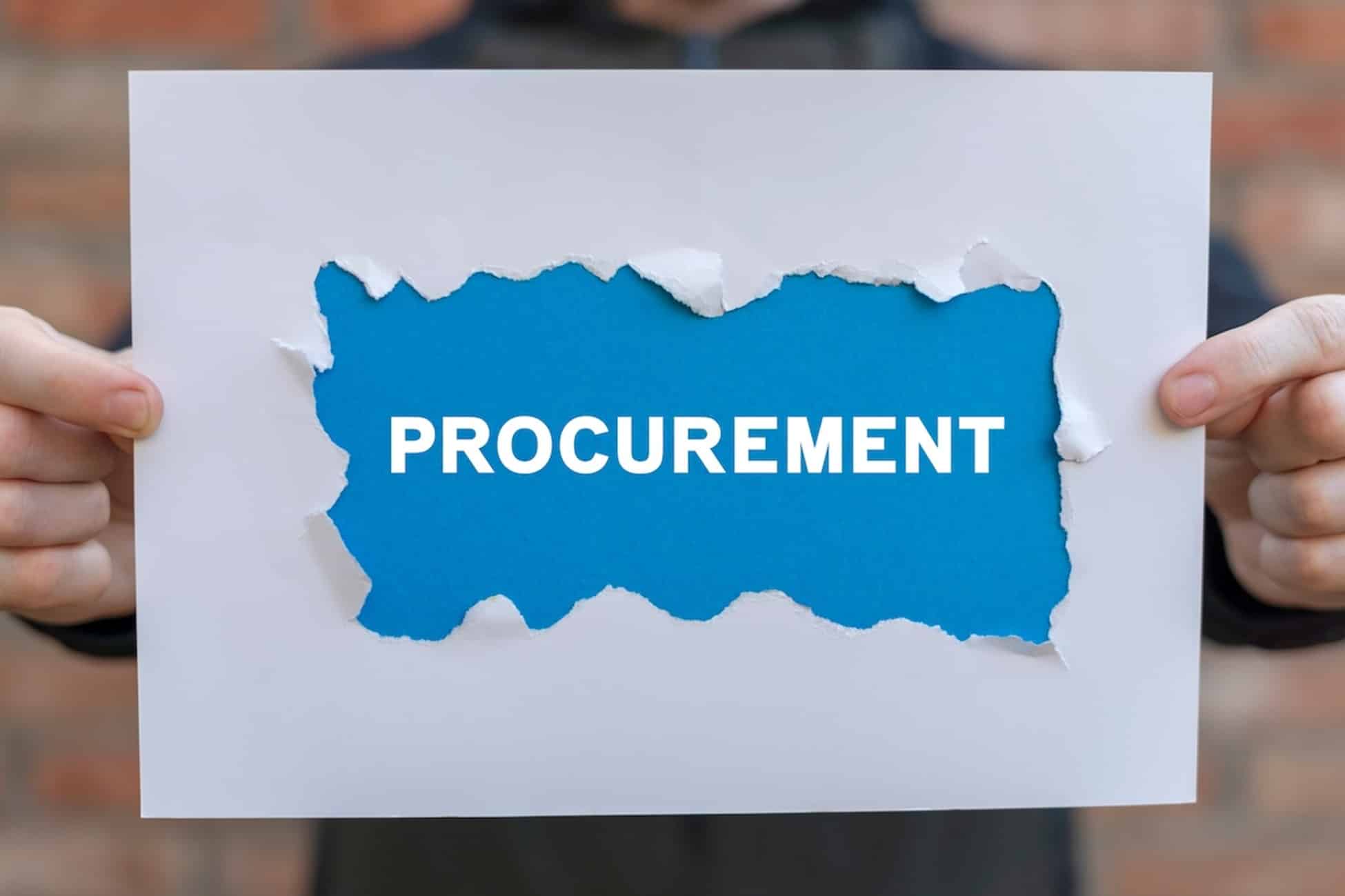
What is a Transportation Management System (TMS)? The Features and Benefits of TMS Software
A transportation management system (TMS) is a critical piece of software for companies that rely on transportation to move products or goods. A TMS manages the transportation process and helps optimize it, making it more efficient and cost-effective.
There are many potential advantages and benefits of implementing a TMS in your business. In this article, we will discuss what a TMS is, how it can help your business, and some of the key features and functions you should look for when choosing a TMS.
What is a Transportation Management System (TMS)?
A transportation management system is a software application that is designed to help companies plan, execute, and optimize their transportation operations. A TMS will typically integrate with other software applications in your business, such as your warehouse management system (WMS) or enterprise resource planning (ERP) system. Transportation management software can automate and streamline many aspects of your transportation operations, from route planning and load optimization to transportation execution and tracking.
Because a TMS can help you manage your transportation operations more effectively and efficiently, it typically results in cost savings and improved customer satisfaction. In addition, a TMS can provide valuable data and analytics that can help you further optimize your transportation network.
How Does a Transport Management System Work?
In general, TMS software helps businesses make better decisions by accessing real-time data and improving communications. The result is more efficient transportation solutions. Let’s look at how it does this.
Planning and Decision-Making
A TMS can help you plan and optimize your transportation operations. It can automate route planning and load optimization to find the most efficient and cost-effective way to move your products. A TMS can also help you choose the right mode of transportation, whether it be truck, rail, air, or ocean.
Transportation Execution
A TMS can automate the execution of your transportation operations. It can book and track shipments, create bills of lading, and generate shipping labels. A TMS can also track delivery progress and provide real-time updates on the status of orders.
Reporting and Analytics
A TMS can provide valuable data and insights to help you optimize your transportation network. It can generate reports on shipping costs, carrier performance, and delivery times. A TMS can also help you identify trends and patterns to help you make better decisions about your transportation operations.
Key Features and Functionality of a TMS
When choosing a transportation management system, there are several key features you should look for:
- Route and load optimization: A TMS can help you optimize routes and loads to reduce transportation costs.
- Real-time tracking: A TMS can provide real-time tracking of shipments, so you can keep your customers updated on the status of their orders.
- Inventory and asset control and management: A TMS should help you manage inventory and assets, including location tracking and movement.
- Supply chain communication: A TMS should help you manage communication across your supply chain, including order tracking and visibility.
- Data visibility, reporting, and analytics: A TMS should provide data visibility, reporting, and analytics to help you track key performance indicators and make informed decisions.
- Contracts management: A TMS can help you manage contracts with carriers and other vendors, so you can get the best rates and terms.
- Procurement management: A TMS should help you manage the procurement process, from sourcing to invoicing.
- Billing and invoicing: A TMS should help you automate the billing and invoicing process, ensuring accuracy and timely payments.
- Integration with other software applications: A TMS should integrate with your warehouse management system (WMS), enterprise resource planning (ERP) system, or order management (OMS) system to streamline transportation operations.
- Freight optimization: A TMS should help you optimize your freight network by identifying the best routes, carriers, and modes of transportation.
- Freight settlements: A TMS should help you automate the freight settlement process, ensuring accurate and timely payments.
- Risk management and compliance: A TMS should help you identify and manage risk across your supply chain, including compliance with government regulations.
- Security: A TMS should include security features to protect your data including limiting unauthorized access and providing data backups.

TMS Warehouse Management System (WMS) Integration
One of the key benefits of transportation management systems is that they can integrate with other software applications in your business, such as your warehouse management system (WMS) or enterprise resource planning (ERP) system.
For example, if you are using a TMS to plan and execute your transportation operations, the integration with your WMS can help ensure that orders are properly routed and loaded. This coordination between your TMS and WMS can help improve accuracy and efficiency in your transportation operations.
Argos Software’s ABECAS Insight with WMS & Trucking and Freight Management Modules
Argos Software’s ABECAS Insight transforms warehouse operations into fully integrated logistics and fulfillment businesses. We do this by enabling companies to:
- Take orders from multiple sources
- Process them in real-time with RF and voice-directed operations
- Automating the shipping and billing processes
With ABECAS Insight, organizational efficiency will improve, with a positive effect on your bottom line. ABECAS stands for Activity-Based Enterprise Cost Accounting Software but it is much more than accounting software. We offer primary and expanded modules to cover a wide range of functionality for:
- Agribusinesses / Growers
- 3PL Warehouses
- Trucking and Freight
- Service Management
- Small and Medium Sized Business Enterprises (SMB)
Transportation Management System Requirements
When choosing a transportation management system, there are certain key features and functions that you should look for, such as:
- Claims management: A TMS should include a claims management system to help you manage and resolve shipping claims.
- Document management: A TMS should include a document management system to help you manage transportation-related documents, such as bills of lading and invoices.
- Payment management: A TMS should include a payment management system to help you manage and automate transportation-related payments.
- Shipment tracking: A TMS should include a shipment tracking system to help you track shipments throughout the supply chain.
- Visibility and reporting: A TMS should provide visibility and reporting features to help you track key performance indicators.
- Asset management: A TMS should include an asset management system to help you track and manage assets, such as vehicles and containers.
- Compliance and governance: A TMS should help you meet compliance requirements and support your governance processes.
- Dock scheduling and yard management: A TMS should help you optimize dock and yard operations.
- Freight rating and multimodal transport: A TMS should provide freight rating and support for multimodal transport.
- Mobile access: A TMS should be accessible from mobile devices, so you can manage your transportation operations on the go.
- Reporting and dashboards: A TMS should provide reporting and dashboards to help you track key performance indicators.
- Transportation order management: A TMS should help you manage transportation orders, including creating, tracking, and invoicing.
- Transportation sourcing and procurement: A TMS should help you source and procure transportation services.
- Integration: A TMS should be able to integrate with other systems, such as your enterprise resource planning (ERP) or warehouse management system (WMS).
In addition to these, you will also want to consider the specific requirements of your business. TMS requirements will vary depending on the size and type of your business, as well as the specific transportation challenges that you are facing.
Once you have a clear understanding of your transportation management system requirements, you will be in a better position to choose the right TMS for your business.
Benefits and Advantages of a Transportation Management System
There are many potential benefits of implementing a transportation management system in your business operations. Let’s look at some of the ways incorporating a TMS can benefit your business:
- Cost savings: A TMS can help you reduce transportation costs by optimizing routes and loads, as well as improving overall transportation efficiency.
- Improved customer satisfaction: A TMS can help you improve customer satisfaction by ensuring on-time delivery and providing visibility into the status of orders.
- Data-driven decision-making: A TMS can provide valuable data and analytics to help you make informed decisions about your transportation network.
- Improved visibility and traceability: A TMS can provide improved visibility into the status of orders and shipments, as well as better traceability in the event of a problem.
- Improved warehouse and supply chain efficiency and productivity: A TMS can help optimize warehouse and supply chain operations and improve overall efficiency.
- Increased scalability: A TMS can help you accommodate future growth by being scalable and flexible.
Disadvantages of TMS
There are also a few potential disadvantages to using a TMS, including:
- Investment: Purchasing and setting up a TMS can be a significant investment.
- Training: You will need to train your employees on how to use the system.
- Compatibility: You will need to make sure that the TMS is compatible with your existing systems and processes.
TMS and Smaller Businesses
If you are a small business, you may be wondering if a TMS is right for you. The answer is that it depends on your specific needs and challenges.
As we’ve discussed, TMS can offer many advantages and benefits. And many of these apply to small businesses as well.
However, a TMS can also be a significant investment, so you will want to make sure that it is the right solution for your business.
If you are considering a TMS for your small business, there are a few things to keep in mind.
- First, you will want to ensure that the TMS is scalable and can grow with your business.
- Second, you will want to consider the cost of the TMS, as well as the cost of implementation and training.
- Finally, you will want to make sure that the TMS is compatible with your existing systems and processes. However, if you’re currently deciding on other systems to purchase, like a WMS, you’ll have the advantage of choosing a compatible TMS and WMS together.
Alternatives to a TMS
If you are not ready to invest in a transportation management system, there are a few alternatives that you can consider. One option is to use TMS functionality that may be included as part of a larger ERP or WMS.
Another option is to engage the services of a third-party logistics (3PL) provider. A 3PL can provide many of the same services as a TMS, including transportation planning and execution, carrier management, and freight settlements.
The Importance of Transportation Management Systems
Simply put, a TMS is a key component of an effective supply chain and within the transportation industry. Providing crucial visibility into the movement of goods enables more precise and efficient transportation planning. This leads to satisfied customers, increased sales, and growth for your business.
Why You Should Invest in a TMS
If you are looking to improve your transportation operations, a TMS may be the right solution for you. A TMS can help you manage your transportation operations more effectively and efficiently, leading to potential cost savings and improved customer service. In addition, a TMS can provide valuable data and analytics that can help you further optimize your transportation network.
Conclusion
Transportation management systems (TMS) can offer many advantages and benefits to businesses of all sizes. If you are considering a TMS, be sure to keep in mind the cost of implementation and training, as well as the need for compatibility with existing systems. In addition, consider the scalability of the TMS to accommodate future growth.
Argos Software is a leading provider of enterprise management software and warehouse management solutions for 3PL, 4PL, Distribution, Agribusinesses, Growers, and eCommerce. We offer comprehensive, end-to-end solutions. Our customizable software is designed to meet the unique needs of your business.
Contact us today to learn more about how we can help you improve your transportation operations.
More Information:
What is Transportation Management in Supply Chain Management?
A transportation management system can help you manage your transportation operations and supply chain. A TMS can provide you with real-time visibility into the transportation network, so you can quickly and easily identify delays or issues. In addition, a TMS can help you track and manage transportation documents, such as bills of lading and invoices. By using a TMS, you can improve the efficiency of your supply chain planning and transportation operations.
What is TMS in Warehousing?
A TMS is a logistics software that helps businesses plan, manage, and optimize the physical movement of goods both incoming and outgoing, as well as ensuring that shipments are compliant.
What is TMS in WMS?
A TMS is a software application that helps businesses plan, execute, and optimize their transportation operations. A TMS can be integrated with a warehouse management system (WMS) to help businesses manage their transportation and warehousing operations.
When integrating a TMS with a WMS, businesses can take advantage of the benefits of both systems, such as increased efficiency, improved accuracy, and reduced costs.
What is a TMS provider?
A TMS provider is a company that provides transportation management software and services that helps businesses plan, execute, and optimize their transportation operations. TMS providers may also offer other software applications, such as a warehouse management system (WMS), to help businesses manage their warehousing operations.
In addition, TMS providers may offer transportation consulting services to help businesses improve their transportation operations.
Argos Software is an enterprise management software provider offering WMS and TMS integration along with other essential modules. We offer software solutions, consulting, and implementation for third-party logistics providers (3PL), 4PL, supply chain, distribution, agribusiness, growers, and eCommerce.
Who Uses Transport Management Systems?
Companies that use transportation management systems include manufacturers, retailers, distributors, logistics service providers, and transportation carriers. TMS software is used across the supply chain to plan, execute, and optimize transportation operations.
What Does TMS Stand for in Manufacturing?
In manufacturing, TMS stands for a transportation management system. A TMS is a software application that helps 3PL, manufacturing, and supply chain businesses plan, execute, and optimize their transportation operations.
What is a TMS System for Brokers?
A freight broker transportation management system is a solution designed to help freight brokers manage their business, shopping for capacity, tracking loads & payments and optimizing your operation – ultimately leading to more efficient running of your business.
What is a TMS System in Logistics?
As in the other industries mentioned, in logistics operations, a TMS is a software application that helps businesses plan, execute, and optimize their transportation operations. A TMS can be used by logistics management to manage shipments, rates, tenders, billing and invoicing, transportation execution, analytics and reporting, fleet management, driver management, dock scheduling and yard operations, documentation management and settlement, security and compliance, among other things.
What is Transportation Order Management?
Transportation order management is the process of managing transportation orders from start to finish. Transportation order management involves creating and tracking transportation orders, managing transportation resources, and communicating with stakeholders throughout the transportation process.
What are the Functional Requirements of a Transport Management System?
The functional requirements of a TMS vary depending on the specific needs of the business. However, some common functional requirements of a TMS include transportation planning, execution and optimization; shipment management; rate management; tender management; billing and invoicing; transportation execution; analytics and reporting; fleet management; driver management; dock scheduling and yard operations; documentation management and settlement; security and compliance.




